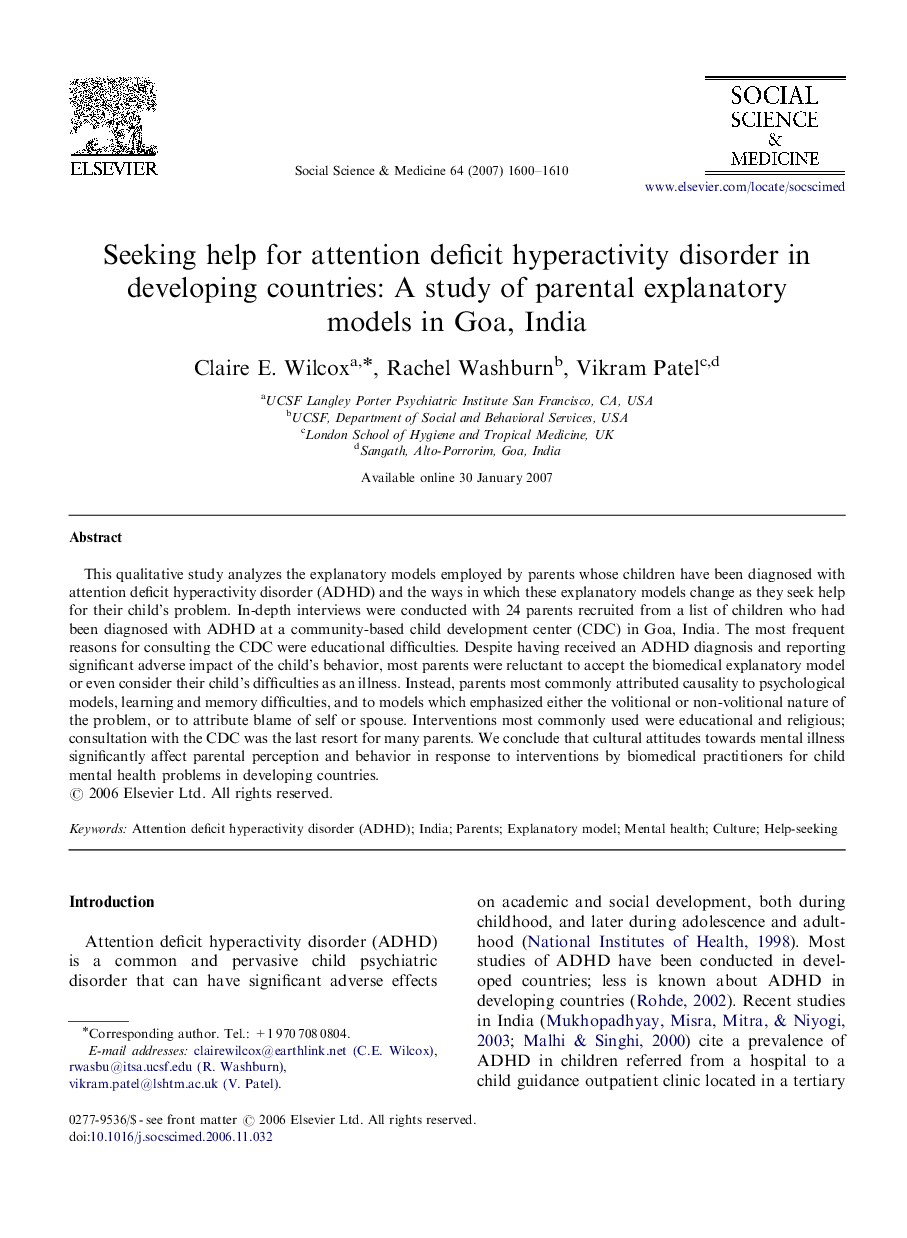| Article ID | Journal | Published Year | Pages | File Type |
|---|---|---|---|---|
| 954805 | Social Science & Medicine | 2007 | 11 Pages |
This qualitative study analyzes the explanatory models employed by parents whose children have been diagnosed with attention deficit hyperactivity disorder (ADHD) and the ways in which these explanatory models change as they seek help for their child's problem. In-depth interviews were conducted with 24 parents recruited from a list of children who had been diagnosed with ADHD at a community-based child development center (CDC) in Goa, India. The most frequent reasons for consulting the CDC were educational difficulties. Despite having received an ADHD diagnosis and reporting significant adverse impact of the child's behavior, most parents were reluctant to accept the biomedical explanatory model or even consider their child's difficulties as an illness. Instead, parents most commonly attributed causality to psychological models, learning and memory difficulties, and to models which emphasized either the volitional or non-volitional nature of the problem, or to attribute blame of self or spouse. Interventions most commonly used were educational and religious; consultation with the CDC was the last resort for many parents. We conclude that cultural attitudes towards mental illness significantly affect parental perception and behavior in response to interventions by biomedical practitioners for child mental health problems in developing countries.
